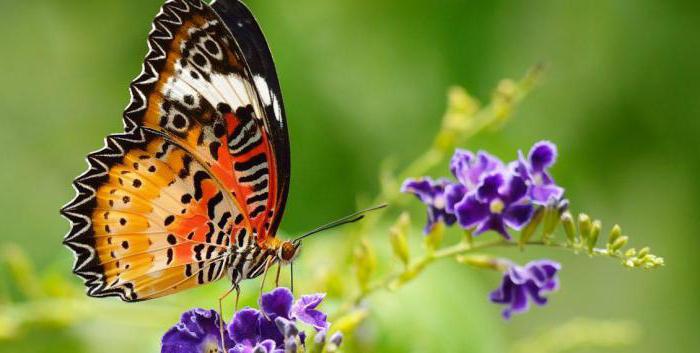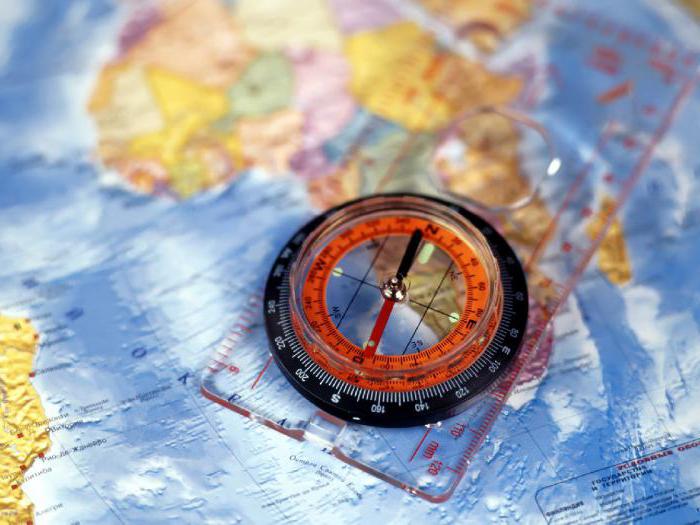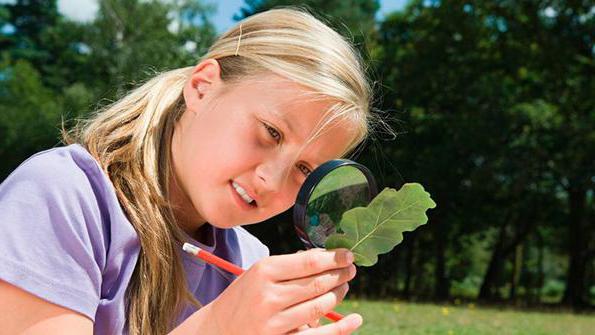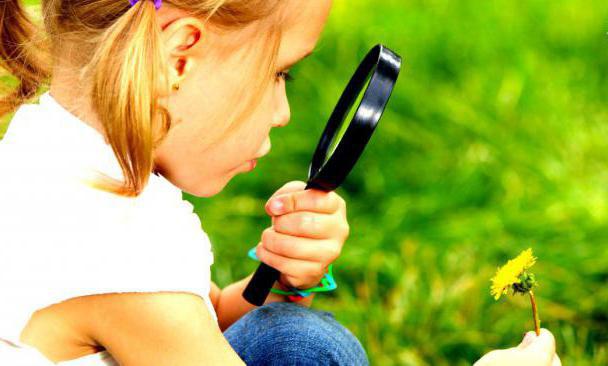Left a reply Guest
In the process of learning about nature, separate natural Sciences. This necessary stage cognition – the stage of differentiation of knowledge, differentiation of sciences. It is due to the need to cover an increasingly larger and more diverse number of natural objects being studied and to penetrate deeper into their details. But nature is a single, unique, multifaceted, complex, self-governing organism. If nature is one, then the idea of it from the point of view of natural science should also be one. Such a science is natural science.
Natural science is the science of nature as a single integrity or a set of sciences about nature, taken as a single whole. Last words in this definition they once again emphasize that this is not just a set of sciences, but a generalized, integrated science. This means that today the differentiation of knowledge about nature is being replaced by its integration. This task is determined, firstly, by the objective course of knowledge of nature and, secondly, by the fact that humanity learns the laws of nature not for the sake of simple curiosity, but to use them in practical activities, for your livelihood.
The word "natural science" means knowledge about nature. Since nature is extremely diverse, in the process of understanding it, various natural sciences were formed: physics, chemistry, biology, astronomy, geography, geology and many others. Each of the natural sciences studies some specific properties of nature. When new properties of matter are discovered, new natural sciences appear with the aim of further studying these properties, or at least new sections and directions in existing natural sciences. This is how a whole body of natural sciences was formed. Based on the objects of study, they can be divided into two large groups: sciences about living and inanimate nature. The most important natural sciences about inanimate nature are: physics, chemistry, astronomy.
Physics is the science that studies the most general properties matter and forms of its movement (mechanical, thermal, electromagnetic, atomic, nuclear). Physics has many types and sections ( general physics, theoretical physics, experimental physics, Mechanics, Molecular physics, atomic physics, nuclear physics, physics electromagnetic phenomena etc) .
Chemistry is the science of substances, their composition, structure, properties and mutual transformations. Chemistry studies the chemical form of movement of matter and is divided into inorganic and organic chemistry, physical and analytical chemistry, colloidal chemistry, etc.
Astronomy is the science of the Universe. Astronomy studies the movement of celestial bodies, their nature, origin and development. The most important branches of astronomy, which today have essentially turned into independent sciences, are cosmology and cosmogony.
Cosmology is a physical study of the Universe as a whole, its structure and development.
Cosmogony is a science that studies the origin and development of celestial bodies (planets, Sun, stars, etc.). The newest direction in the knowledge of space is astronautics.
Biology is the science of living nature. The subject of biology is life as special shape movements of matter, laws of development of living nature. Biology seems to be the most branched science (zoology, botany, morphology, cytology, histology, anatomy and physiology, microbiology, virology, embryology, ecology, genetics, etc.). At the intersection of sciences arise related sciences, such as physical chemistry, physical biology, chemical physics, biophysics, astrophysics, etc.
What is science? It is a branch of knowledge and the systematic study of the universe and everything it encompasses, taking into account facts, observations and experiments. Natural science allows us to study the truths of the world based on evidence and objective understanding.
General information
The nature of science is based on reason, experiments, facts and truths. It aims at logic, rationality and objectivity. There are certain dogmas, such as the fact that the Earth revolves around the Sun. However, scientists love to make discoveries. New information gives best ideas, technology, saves lives.
When it comes to explaining our world, science and pseudoscience are completely different things. Take, for example, astronomy and astrology. The second is the perfect embodiment of pseudoscience, a belief system that looks like it is based on scientific ideas. In fact, astrology does not obey even the simplest scientific rules.
Real science has concrete claims that are stated and tested. If they are not confirmed, they are rejected. A sure sign pseudoscience is the disregard for evidence and the presence of alternative explanations.

Around us
What does natural science study? Close your eyes and imagine that you are in a forest clearing. What do you see, what do you hear? What smells do you smell, what can you touch? Do you see hills and trees? Do you hear the birds singing and the wind blowing? Can you smell the flowers growing near you? Can you touch soft grass with your feet or feel the wind blowing on your face? Nature is everywhere! This physical world and everything that is in it, everything that is not created by people.
Using the Five Senses to Explore Nature
The five senses of your body help you recognize and understand what nature is. These are sight, hearing, smell, taste and touch. Using these five senses, you can identify almost everything around you. Is it possible to try nature? To do this, just eat an apple. And this is just one example. Fruits, vegetables, nuts are all examples of nature.

Life in nature
Nature science is the science of life. It's not just what surrounds us, it's much more. All living creatures that exist on the planet - lions, tigers, bears, penguins, snakes, elephants are also nature. There are trees in the forest, as well as animals: deer, squirrels, rabbits and bears. There are fish, crabs, sharks and dolphins in the ocean. Nature really is everywhere.

Study methods
In our younger years, we should be more concerned about creating direct contact with nature rather than memorizing facts about things we have not encountered in life. real life. The study of nature should include those objects that are most often found in the field of view. Flowers, trees, birds, insects and grass found in your own yard or neighborhood are a great place to start learning about biology, the science of living things.
Exploring the world around us is about creating and strengthening a trusting relationship with nature. The educational value of natural science exploration lies in its ability to complement our ability to appreciate the world and enjoy all the objects open space. Nature exploration is intellectual, physical and moral development through purposeful actions and responses to the environment.
Natural Sciences
Many disciplines study the world around us:
- Astronomy is a science whose object of study is all celestial bodies (their origin, structure, composition and movement in space.) Astronomers continue to study stars, comets, asteroids, and planets. Many mysteries of the Universe are already known, but it is difficult to imagine how many more amazing things remain to be discovered.
![]()
- Physics is a science that studies various natural phenomena and mechanisms. This is something you have to deal with every day. Why do bodies move, temperature changes, what is electricity, sound, light. This science explains what lightning is and why thunder thunders, what an echo is and what a rainbow is made of. This is also the basis of any technique. No equipment in the world will work unless certain physical laws are taken into account.

- Chemistry is the science of substances and their compounds. The study of this discipline allows people to extract substances in laboratory conditions that are used in the household and in everyday life.

- Geography is the science of planet Earth. The objects of study are seas and oceans, continents and continents, rivers and lakes, mountains and plains, cities and countries, and much more.

- Biology is the science of nature that studies microbes and bacteria, protozoa and multicellular organisms, fungi and plants, animals and humans. This discipline allows you to find out what organisms inhabit our planet, what their numbers and structure are. Biology also studies the development of living organisms, their reproduction and relationships with each other and with inanimate nature.

- Ecology is a science that examines the relationship and interaction of living beings with each other and with the surrounding world. One of the main issues is the study of contact between nature and people. The main task of ecology is to help people protect nature, preserve our common home in which we live, and where our descendants will live.
 Natural science knowledge
Natural science knowledge
Natural science is an important part systems of modern scientific knowledge, which also includes a number of technical and humanities. This is an evolving set of ordered data about the patterns of the material world.

The process of learning the science of nature is a constant search for truth
What do natural sciences study? Substance, matter, life, man, planets, space and much more. All this can be combined into groups. Thus, related sciences will be physics, chemistry and physical chemistry. But there are also mechanics, thermodynamics, optics and so on. Natural science is an incredibly interesting and at the same time complex complex, which includes a lot of different scientific disciplines.


